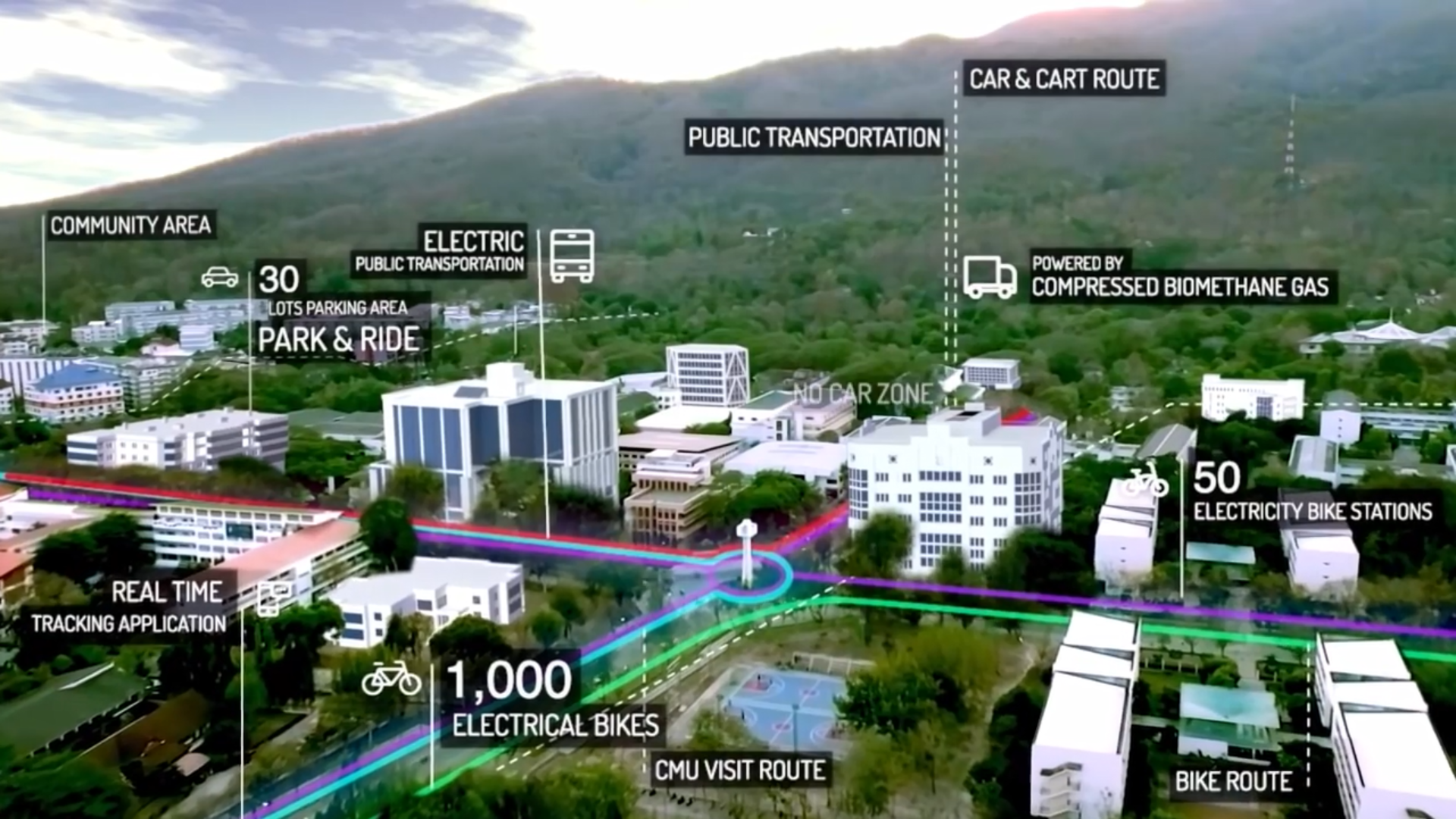Conference venue
Chiang Mai University encompasses 21 faculties and 4 colleges, offering diverse programs ranging from social sciences to pure sciences. Within this academic landscape, tourism and hospitality courses are provided across various faculties and colleges, each aligning with specific expertise areas. Notably, the Faculty of Humanity (Tourism Management Department), Business Administration, Economics, and the College of Arts, Media, and Technology collaborate closely as the Chiang Mai University Tourism and Hospitality Consortium. This consortium is dedicated to advancing knowledge and research skills in the tourism and hospitality field. The collaborative efforts involve sharing expertise in tourism management, business, information technology, and economics.
This interdisciplinary approach is geared towards improving academic programs, training courses, and research initiatives for both students and professionals. Consequently, the organization of the APacCHRIE 2025 conference will be overseen by four faculties, ensuring the event's success
Chiang Mai University (CMU) is Thailand’s first regional university, established in accordance with the government’s policy and the intent of the northern people to serve as a center for academic and higher professional knowledge, providing benefits to the locality and the country as a whole. Chiang Mai University is therefore an organization that helps develop the country and create values to the society based on its established goals through an integration of various fields of expertise towards sustainable innovation.
The vision from CMU’s 13th Educational Development Plan (2022 – 2026) is to be a “A Leading University Committed to Social Responsibility for Sustainable Development through Innovation”. The policy is in line with the guidelines of higher education institutions around the world, Thailand’s development guidelines, and guidelines for the operation in all six areas of Chiang Mai University, which consists of Bio-Innovation, Medical innovation, Creative Lanna, Education, Research and Innovation, along with organization management based on the Sustainable Development Goals (SDGs). The university’s strategic objectives will positively benefit students, personnel, local communities, and society as a whole. In 2023, CMU was ranked 801-1000 globally in the World University Rankings 2024, no. 74 worldwide in THE Impact Rankings 2023, no. 3 in Thailand, and no. 1 in Thailand for SDG 13: Climate Action.

Chiang Mai University has driven the potential enhancement of communities to establish their creative community businesses through the promotion and support as a community enterprise. Knowledge of agricultural product processing is also transferred, along with the creative tourism activities that combine agricultural lifestyles, local culture and folk wisdom to create a job opportunity and generate income to local people.
Chiang Mai University also actively contributes to the development goals of Chiang Mai Province for the next 20 years (BE 2566 - 2585), titled "City of Life and Prosperity based on Fair and Sustainable Opportunity Distribution." The university is committed to mobilizing its highly qualified academic personnel to fully support this initiative. It aims to drive Medical & Wellness Tourism, making Chiang Mai a significant destination in line with the government's policy to transform the province into a "Wellness City." The university also seeks to integrate knowledge, local wisdom, and Lanna cultural heritage into a sustainable development framework, creating a "Sustainable Smart Campus" as an exemplary model.
Chiang Mai University (CMU) is well-suited to host a tourism conference for several reasons:
- Academic Excellence: CMU is known for its academic excellence, particularly in fields related to tourism, hospitality, and business. CMU also has the Tourism and Hospitality Consortium dedicated to enhancing capabilities in teaching, academic services, research, innovation, and technology in tourism, services, and hotel management. The university's faculty and researchers can contribute valuable insights and expertise to the conference discussions.
- Collaboration with Industry: CMU collaborates with various sectors related to tourism, including national tourism bodies, industry councils, and consortia. This collaborative approach ensures that the conference reflects the latest industry trends and challenges.
- Sustainable Initiatives: CMU's commitment to sustainability, as evidenced by its efforts towards a "Sustainable Smart Campus," aligns with the increasing importance of sustainable practices in the tourism industry. Besides, one of the strategic goals of Chiang Mai University is to become a carbon neutral university by 2032. The conference can highlight and promote sustainable tourism practices.
- Strategic Location: Chiang Mai University's strategic location in northern Thailand, known for its rich cultural heritage and diverse tourism offerings, makes it an ideal location for a tourism conference. Delegates can experience firsthand the unique aspects of the region.
- Smart city initiative: Chiang Mai University has been awarded the Winner of Smart City Solution Award 2023, which emphasizes the goal to become a digital university through innovation. Living in the university will allow you to experience various solutions provided for excellent management for everyone
- CMU have hosted International Conferences on Tourism (ICOT) 2017 and The Asia Pacific Tourism Association (APTA) APTA 2023 by Faculty of Economics.

